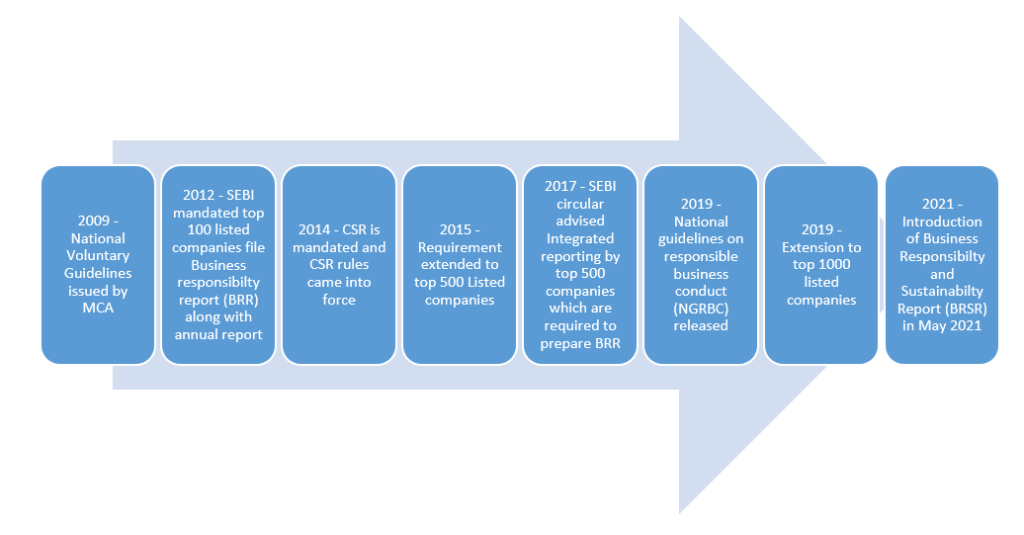
Statutory Audit – December 2022
Environmental, Social and Governance (ESG)
As Sustainable development and Climate change movements are getting momentum along with the push from investors. It is imperative for companies to report their sustainability performance in order to maintain transparency with stakeholders.
Global sustainable investments are growing rapidly and reached $35 trillion or 36% of the total assets under management in 2020. In India, almost all sustainable investment products have been launched in the last two years, reflecting increasing interest and potential.
Evolution of ESG reporting in India

Some of the key disclosures sought in the BRSR are:
- An overview of the entity’s material ESG risks and opportunities, approach to mitigate or adapt to the risks along with financial implications of the same.
- Sustainability related goals & targets and performance against the same
- Environmental disclosures cover aspects such as resource usage (energy and water), air pollutant emissions, greenhouse (GHG) emissions, transitioning to a circular economy, waste generated and waste management practices, biodiversity etc.
- Social disclosures covering the workforce, value chain, communities and consumers, as given below:
- Employees/workers: Gender and social diversity including measures for differently-abled employees and workers, turnover rates, median wages, welfare benefits to permanent and contractual employees/workers, occupational health and safety, training etc.
- Communities: Disclosures on Social Impact Assessments (SIA), Rehabilitation and Resettlement, Corporate Social Responsibility etc.
- Consumers: Disclosures on product labelling, product recall, consumer complaints in respect of data privacy, cyber security etc.
ESG investing is very important as it provides an opportunity for all stakeholders to build an economy that is more inclusive and sustainable.
It provides a framework to measure performance of an organization beyond financial metrics. SEBI is visionary to facilitate the achievement of the United Nations Sustainable Development Goals and the Paris Agreement on Climate Change by way of mandatorily requiring ESG reporting by Indian companies.
Business responsibility and Sustainability Report (BRSR) is more comprehensive disclosure framework than BRR.
Going forward as it is mandatory for top 1000 listed companies from the F.Y -22-23 it is necessary for the companies to prepare for the change and include the reporting in their annual reports.
